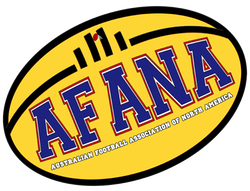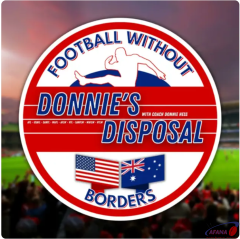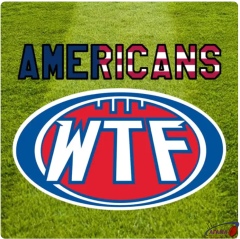by Johnson Leung for AFANA in Melbourne
(Ed. note: Johnson reports on media developments for AFANA from his base in Melbourne. He has reported on every AFL TV deal since 1998.)
The Australian Rugby League Commission announced on August 21 that Channel Nine and Fox Sports had retained the domestic broadcast rights to the National Rugby League for 2013-2017, fighting off strong challenges from Seven and Ten networks. How does it compare with the 2012-2016 AFL domestic broadcast deal, which was won by Seven and Foxtel last year? This article hopes to give fans in North America some ideas.
Match scheduling
In the new deal, the NRL will have a fixed schedule from the start of next season for the first 20 rounds, with the final six rounds to be announced by week 16 of the competition. In previous years the NRL announced the schedule for the first five rounds before the end of previous year (for example, the schedule for the first five rounds of 2012 season was revealed on November 2011), with the schedule for the following rounds revealed almost each week during the season. Nine had first picks for its Friday night games, which often meant popular clubs such as the Brisbane Broncos were scheduled to play in the time slot against the wishes of the clubs involved, while lowly ranked clubs rarely got a chance.
The AFL maintains the right to schedule games for the entire season, and reveals the schedule, including dates and times, for the next season in October each year. Seven and Foxtel take turns to pick the games for their allocated time slots. The League introduced a flexible final round in the 2011 season, with exact dates and times revealed in late July, to give the Top Eight teams more rest time before the first week of the Finals. The early release of the schedule means members of the public can plan well in advance which games they want to attend, something they were unable to do under the previous NRL broadcast deals. The number of Friday night games a club plays each year often depends on its overall performance in the previous season. Under the new NRL broadcast deal, there will be three Thursday night games each year from 2013 to 2017, while the AFL schedules at least two Thursday night games each year, usually the night before Good Friday and the opening round game between Carlton and Richmond.
Regular season coverage
The coverage split of the NRL games in the new broadcast deal is the same as the previous deal, that is, each week Fox Sports televises five games live across Australia (on Saturdays, Sundays and Mondays), while Nine televises one Friday night game live, followed by the replay of the second Friday night game, and a Sunday afternoon game on a one-hour delay, in New South Wales, the ACT, Queensland and Northern Territory, with late night replays in Victoria, South Australia, Western Australia and Tasmania, where Aussie Rules is the dominant sport.
One of the reasons rugby league struggles to get acceptance in Victoria is due to Nine's reluctance to televise games involving the Melbourne Storm into the state in prime time, despite the team's on-field success in recent years. However from this year, regular season games were televised in VIC, SA, WA and TAS on Nine's digital channel GEM, at the same time as NSW. This arrangement will continue for 2013-2017.
Under the AFL broadcast deal, Foxtel televises every regular season game live either on its AFL channel Fox Footy or Fox Sports 1, while Seven has the right to broadcast a minimum of four games each round (Friday night, Saturday afternoon, Saturday night, Sunday afternoon). The Friday night game is televised live in VIC, SA, TAS and NT and on reduced delay into WA on the main channel, and in NSW, ACT and QLD on Seven's digital channel 7mate. Saturday and Sunday games are televised on Seven in VIC, SA, TAS, NT and WA, and 7mate in NSW, ACT and QLD.
Finals coverage
Under the new NRL broadcast deal, Nine will continue to televise every finals game live in NSW, ACT, QLD and NT. However it will provide better coverage in VIC, SA, WA and TAS by broadcasting the first three weeks of Finals games live on digital channel GEM. Nine will televise the Grand Final exclusively live across Australia, and from 2013 the Grand Final will be held on Sunday nights, starting at 7.15pm AEST. This year's game will be held at 5.15pm AEST, finishing at 7pm AEST.
Under the current AFL broadcast deal, the first three weeks of Finals' games will be televised live on Seven and simulcast on Fox Footy, with the Grand Final to be broadcast live on Seven and replayed on Fox Footy immediately after the final siren has sounded. The AFL has declined repeated requests from Seven to schedule the Grand Final on the Saturday night.
Digital coverage
In the new NRL broadcast deal, Fox Sports has also acquired digital rights to stream its five live weekly games via IPTV (internet protocol television) and tablet devices. Under the current AFL broadcast deal, every game including the Grand Final is streamed live over Telstra's Next G cellular network to smartphones and tablets, and at least one live game per week to T-Box customers using IPTV. The telco firm has also secured a deal with Foxtel to stream every match live if T-Box customers subscribe to Foxtel.The rights held by Telstra has significantly restricted the ability of networks and providers outside Australia (including organizations in the US) in providing internet based coverage of the AFL.
Financial contribution
The 2013-2017 NRL domestic broadcast deal is worth A$1.025 billion (US$1.058 billion), which is well up on the previous agreement signed by Nine and Fox Sports in 2005, which was worth A$500 million over six years. The new contract comprises A$925 million in cash and A$100 million in contributed benefits ("contra") such as advertisting and promotion. Nine alone will pay A$85 million a year, nearly double the A$48 million it was paying as part of the last deal. Fox Sports will contribute A$100 million a year in cash and A$10 million in contra. And the $1.025 billion deal is just the start, with the ARLC still to sell mobile and digital rights, Australian domestic radio rights and a New Zealand TV deal.
The 2012-2016 AFL broadcast deal is worth A$1.253 billion (US$1.37 billion), of which A$1.18 billion is in cash and the rest in contra. The deal is A$369 million higher than the A$780 million Seven and Ten paid for the 2007-2011 rights contract, of which A$749 million was in cash. The total value comprises A$534.5 million in cash and A$85 million contra from Foxtel, A$425 million cash and A$50 million contra from Seven, and $155 million from Telstra. The cash contributions from Foxtel and Telstra are up from the previous deal (A$315 million and A$60 million respectively) but Seven's contribution is A$40 million less.
An analysis of the two codes and their TV deals shows that, while each NRL game gets $15,000 less per match than AFL, rugby league over 80 minutes is more valuable to broadcasters than Aussie Rules over 100 minutes - the NRL is worth A$1275 per minute compared with the AFL's A$1170 per minute.
Conclusion
One of the main reasons Nine and Fox Sports retained the NRL broadcast rights was that they used the first and last rights to better offers from Seven and Ten, but also Fox Sports (and its part-owner News Limited) agreed to give up their first and last rights for future broadcasting deals until 2027. News Limited formed the NRL Partnership with the Australian Rugby League in 1998 to run the national competition. When News Limited left the partnership earlier this year (leading to the formation of the ARLC), it received the first and last rights as a sweetener. No network has the first and last rights to use during the bidding process for the AFL broadcast deal, after Seven used them to secure the 2007-2011 contract with Ten. When negotiations begin for NRL and AFL broadcast deals in around 2015, all networks have equal chances to win the rights.
In recent years, rugby league fans in Australia had complained of Nine's coverage mainly because it televised two games on delay every week, and had a say on which teams it wanted to play on Friday nights to generate maximum ratings and advertising revenue. Many fans hoped either Seven or Ten would secure the new deal as it would bring a breath of fresh air, and were disappointed that Nine and Fox Sports paid more money to retain the rights. Nine Network Chief Executive David Gyngell was unrepentant when asked why his network would not televise Friday night games on two channels simultaneously saying "I'm unapologetic about not showing both Friday night games live on our digital channels. When you pay this much for the exclusive rights you run it to a commercial advantage."
On the surface, the AFL broadcast deal is better than the NRL broadcast deal as the former generates more money, and more games are televised live on free-to-air TV.
Sources: The Daily Telegraph, The Sydney Morning Herald, NRL.com, author's notes
Article last changed on Wednesday, September 05, 2012 - 10:26 AM EDT
Comments
Re: AFL and NRL Domestic Broadcast Deals Compared
Hi Rodney,
Thanks for your post.
I will ask to the author to respond to your specific points however I can answer your first question: How can he say it? He can say it because that is his opinion based on his analysis. You might have a different (and equally valid) view but he is certainly entitled to his opinion. Since he did preface it with "on the surface" it clearly was not meant to be a final and definitive conclusion.
-Rob
AFANA Chairman Emeritus and Site Admin








How can you end your article with this line?
When you say "On the surface" i expect there to be another angle.
If you only compare the regular season AFL and NRL, i expect the NRL would be far a head in per game $$$, more so than actually suggested, because the AFL have 23 (rounds) * 18 teams = 414 games. The NRL has 24*16 = 384. You mentioned that NRL games are shorter than AFL and thus this will just add to the difference between the two. Take into account that the AFL deal included All Media rights and that the NRL are yet to fully exploit their mobile/IPTV rights and in anyones book, the NRL deal not only compares but is substantially above what the AFL got.
You've got to compare apples with apples, so it's probably only worth comparing the AFLs $1.25 minus their $155 million from Telstra agains the NRLs deal of $1.025. Its a very good deal for the NRL considering that it is not expected any expansion will take place. So if in fact the AFL is right and Expansion does add $$ to the board cast deal, then the NRL will be looking for an even bigger pay day in 5 years time.